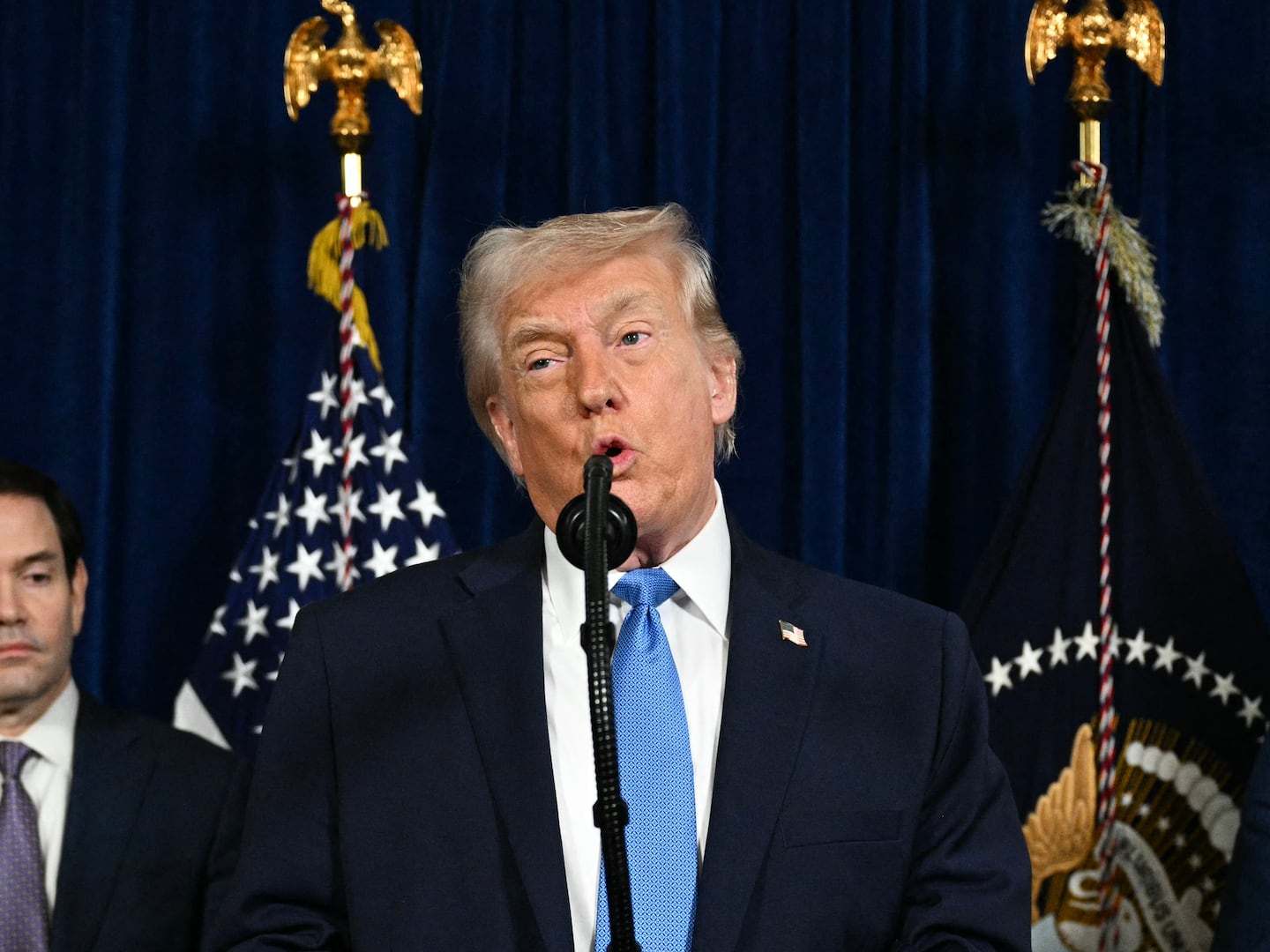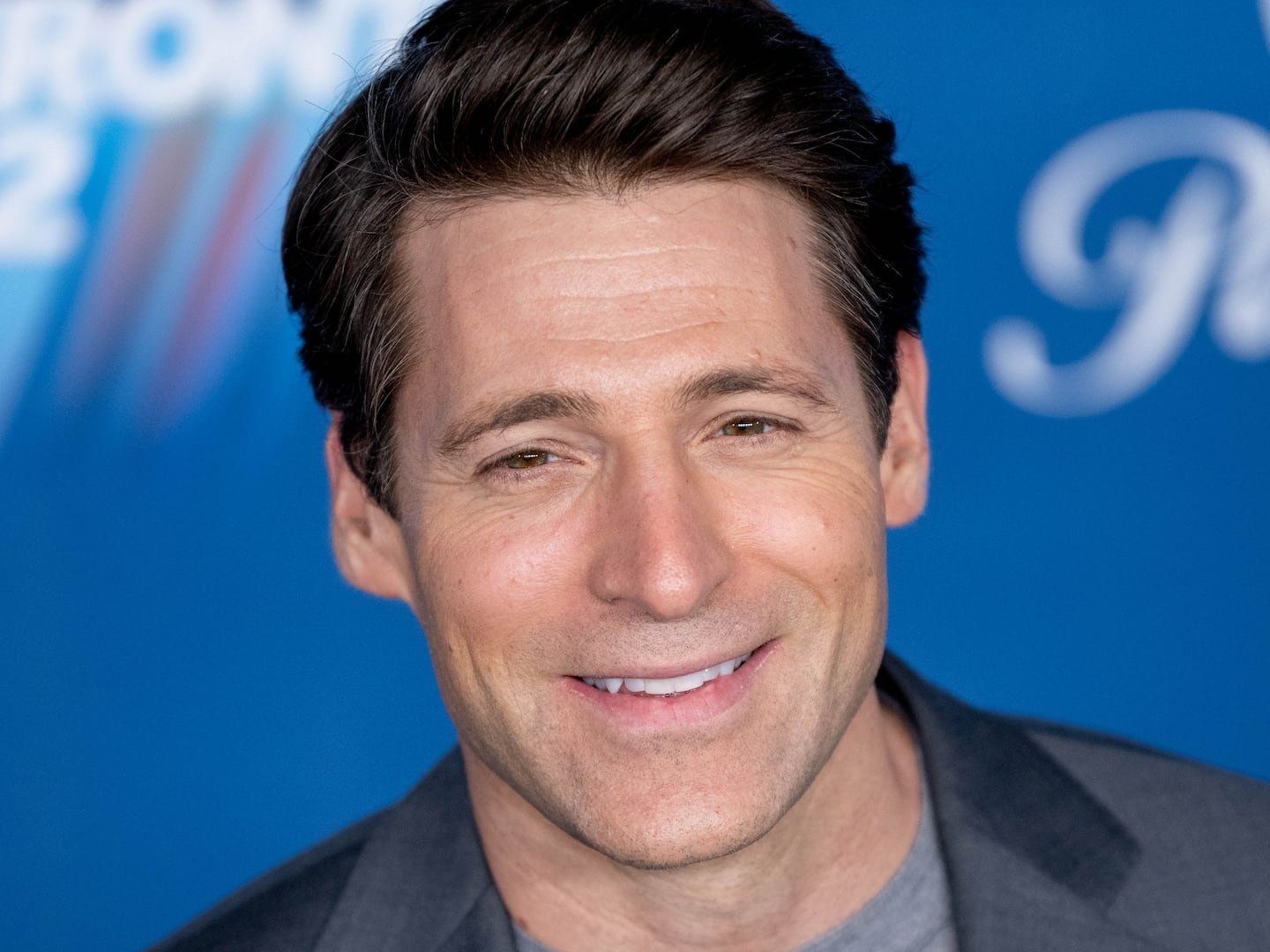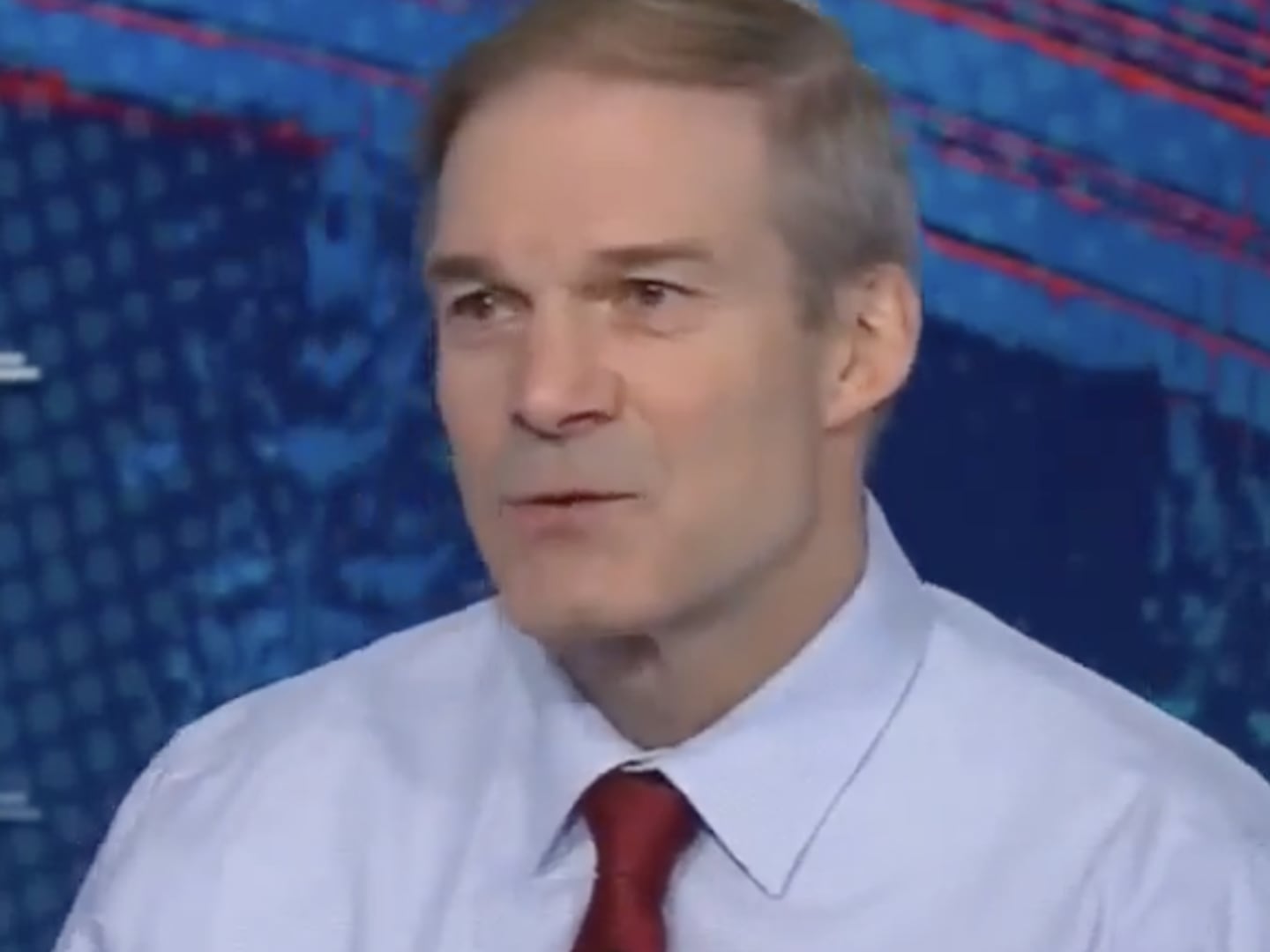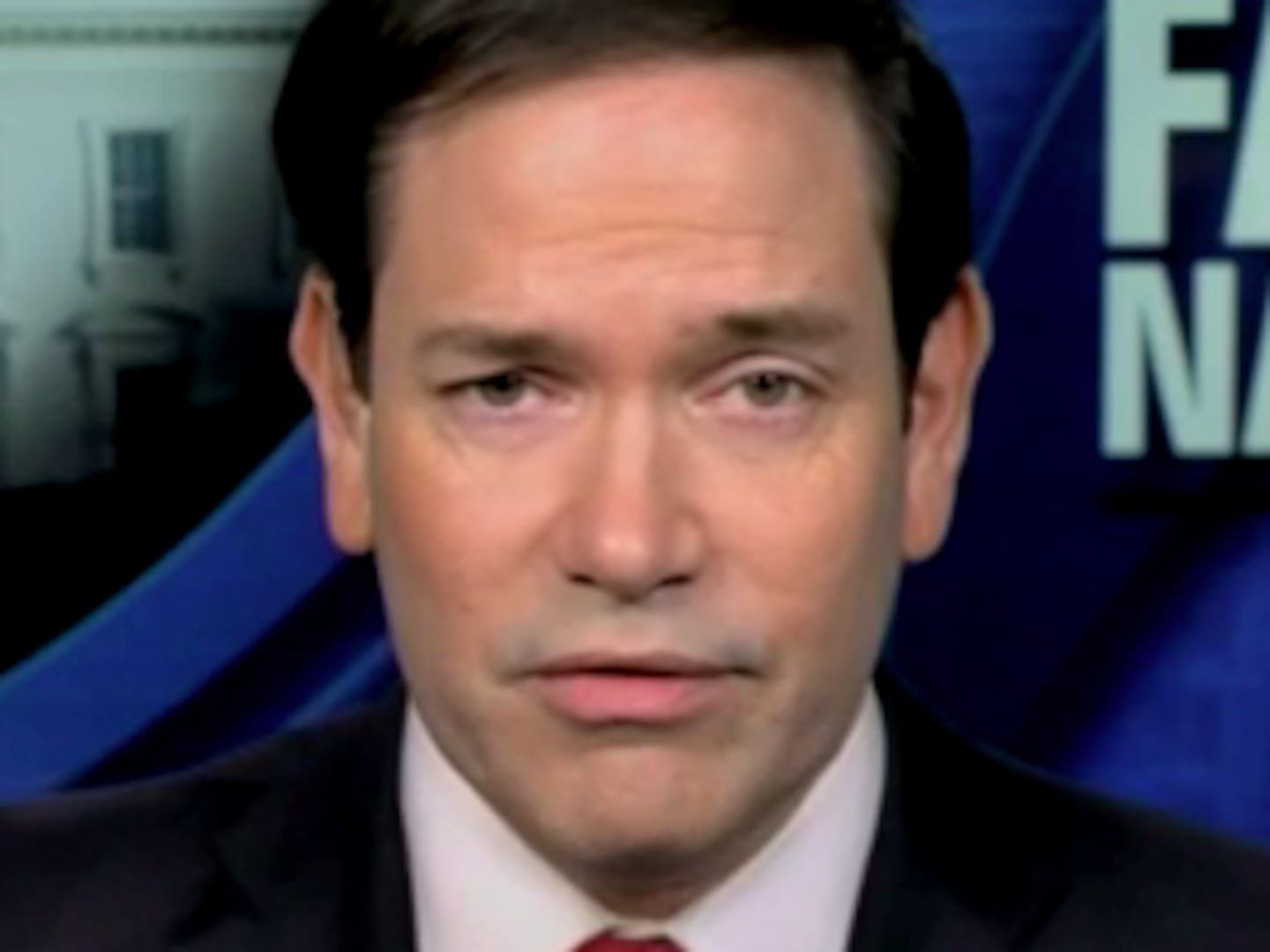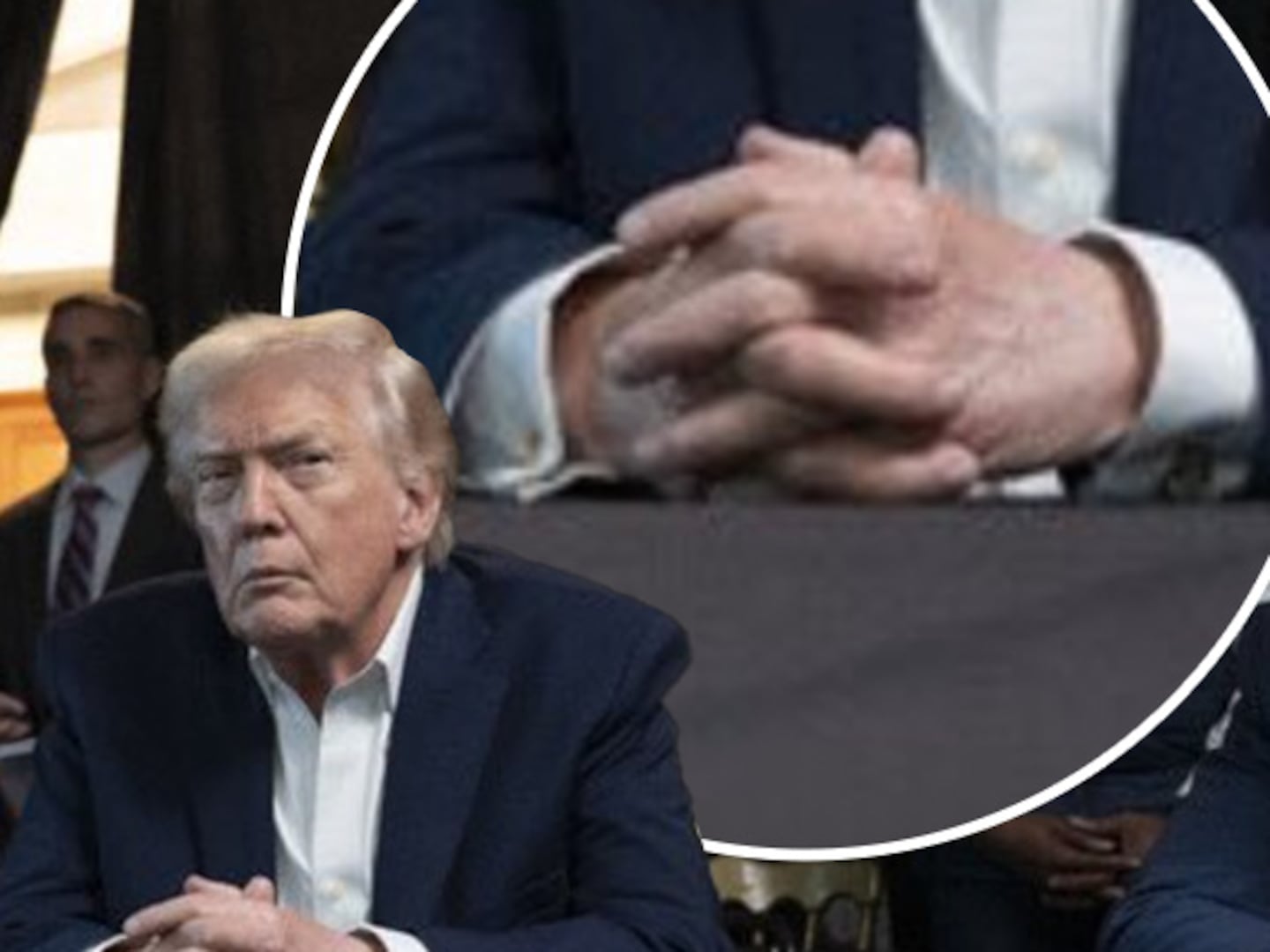PARIS—Every four years, when American presidential elections roll around, there is one almost universal refrain that can be heard half in jest, and half not, from Patagonia to Penang, Oslo to Ouagadougou: “Everyone should be able to vote in the American election,” people will tell American visitors, “since we are all stuck with your president’s policies.” The United States “is so important to the world,” says a Saudi friend, “it’s as if we were electing an emperor—or an empress!”
But never in modern history has the world watched the process with such curiosity, puzzlement, fear and loathing—or what may be worse, fear and laughing—as it has the race between Donald Trump and Hillary Clinton. “For the last year, American democracy has become a circus,” writes Germany’s Der Spiegel, “one in which the most outlandish gag gets the most applause.” Der Spiegel’s cover carries an image of Clinton and Trump (impersonators, I believe) covered in mud.
We can all read the headlines as the international press vies for the most sensational summing up of American insanity. Here in Paris, the current issue of Le Monde calls it “La Folle Campagne,” the mad campaign. The French left-wing daily Libération recently ran an ominous too-close-up of the Republican nominee’s face with the blaring headline “Frankentrump!” and Tuesday’s front page has a truly bizarre profile photo of the hirsute Republican, making him look like a werewolf in front of the moon. The popular tabloid Le Parisien put Trump and Clinton bobbleheads on its cover Tuesday with the headline, “The American Dream?”
“All sane people outside the U.S. (except perhaps the Russians) fear a Trump victory—it would be a triumph for prejudice and ignorance,” says John Andrews, longtime correspondent for The Economist and author of The World in Conflict.
But Spain’s El Pais may have come closest to capturing the view of America that’s been spread around the globe: “The Fury of the Campaign Rips Apart the Future Image of the United States,” Monday’s headline screamed. The article went on to cite “national demons, racism, and misogyny.” But the word to look at twice here is “future.”
There’s a widespread feeling (shall we call it a globalized feeling?) that this campaign in which Trump kept claiming he’d make America great again has, in fact, made it seem much less than it once was. And even those who hope for a Clinton victory seem to have only middling faith in her ability to be a “leader of the free world,” as people used to describe American presidents what seems a long, long time ago.
Today, in each country, each society, people have their own nuanced views of the American elections colored by their past experiences and current preoccupations, but in many countries, the discrediting of American democracy—for so it is seen—is also discrediting the very idea of civil society. As one Brazilian friend wrote to me,
“It has made democracy small and given us the feeling that democracy is now small almost everywhere.”
Uncle Sam once seemed to protect people around the world, now it’s as if he has Alzheimer’s, full of disconnected thoughts, having trouble remembering who he is.
But such is the interest in the American circus, such are the passions it has aroused, that on Monday when I sent out emails to Daily Beast correspondents, friends, and colleagues around the globe asking for their thoughts scores of them responded within minutes.
***
Philip Obaji Jr., in Nigeria, for instance, writes that interest in the American elections there is huge, with many people rooting for Clinton, and many others fearing Trump will make it harder for them to get visas for the U.S. because he’ll brand everyone a possible Boko Haram terrorist. “Then, too,” writes Obaji, “a number of politicians I have chatted with are justifying the rigged system in Nigerian elections, arguing that it happens everywhere in the world, obviously, because Trump has repeatedly insisted that the presidential election in America is being rigged.”
In Venezuela, as Raúl Stolk writes, people immediately associate Trump with the late populist strongman Hugo Chávez “because he reminds us of the reality-TV autocrat Chávez became during his last years.”
“It’s hard not to see some parallels between the anti-politics crisis of the ’90s that gave Chávez the presidency” and “the deep fractures in American society which Trump has been exploiting to connect with his followers,” writes Stolk. “What is worrying is the trail of hate that he’s leaving behind. It will be hard to overcome after he loses. And if he wins? Trump is paving the way to turn his supporters into accomplices of his thuggish behavior.”
Stolk writes there’s “a sort of sad sigh of relief in seeing that the mighty U.S. isn’t invulnerable to the whips and scorns of populism.” But there’s also hope, forlorn or not, that the U.S. can show that “just as anyone can fall into this pit, anyone can get out of it.”
In Brazil, a columnist for Folha de São Paulo concluded that in the course of 25 years, since the end of the Cold War, “the U.S. and its democracy have traveled from euphoria to depression.” But given the crises Brazil has gone through in the last year, including the impeachment and removal of its president and corruption investigations reaching deep into the government that remains, the spectacle of the American election is just one more depressing indication of democracy’s travails.
And in Mexico? Andrea Noel reports that the common emotion on the street, should Trump be elected, is one of futility in the face his bluster. The issue is not so much the wall as the economy: Already the value of the peso has plunged and a Trump protectionist administration could drive it down much further. Ironically, that will make the lure of jobs in the U.S., legal or illegal, just that much stronger and the cartels (earning their revenue in U.S. dollars) that much richer. As the pressure builds, no wall is going to be able to resist it.
Chumel Torres, a sort of Mexican John Oliver with a satirical news show on HBO, told Noel (and tweeted later) that if Trump wins he’ll refer to the U.S. as “the stupidest country in the whole world” for one year on his program. “This plays into a different but important perception of the U.S.” says Noel: “America is great (in a literal sense, imposing... and omnipotent), but most Americans are stupid (as in, ‘Father, they know not what they do.’)”
***
In the Asia-Pacific region, writes Lennox Samuels, “fewer and fewer people observing the election spectacle still seem to think America is some kind of beacon of hope, paragon of democracy, and exemplar of decency and harmony. Or restraint. Mostly people are just amazed and befuddled by the messy election, not to mention Donald Trump.
“People just don’t expect this sort of behavior in the United States,” writes Samuels. “Thais, Indonesians, Singaporeans, Malaysians, and indeed Filipinos are flabbergasted. They expect this kind of thing in Zimbabwe. Equatorial Guinea. Burma. Not the USA.”
There’s consternation at the extent to which the United States during the endless marathon of its own elections seems to have lost focus on the rest of the world.
Populist President Rodrigo Duterte, sometimes called the Trump of the Philippines, has launched a campaign of vigilante killing aimed at drug dealers and drug users, and anyone the vigilantes deem to be such. But the response to this slaughter has been muted from Washington. “I guess they have their own problems now,” as one young Filipino put it.
An Australian in Bangkok summed up the prevailing shock, bafflement, and incredulity when he asked Samuels over the weekend, in plain Australian English: “What the fuck is going on in America, mate?”
“First we laughed at Trump's outrageousness,” writes Alexandra Fisher, who is from Australia, “then it became apparent the spectacle was not ending and this man may actually lead the country we follow into war and rely upon for stability and partnership, especially in Asia.”
Trump’s rumblings have had a seismic effect on Japan and South Korea, as he suggests the U.S. may not want to spend so many resources helping to defend them. (Kim Jong Un in North Korea famously thinks Trump is swell.)
And China?
“Beijing’s filter generates plenty of noise—democracy is dangerous, a government of the people and by the people will not be for the people, and so on,” writes Brendon Hong. And the Chinese don’t see Trump as an aberration because he is loudmouthed—a brand—and constantly on TV. “Even the most ardent Yankophiles will say that he is exactly how 21st-century America portrays itself in East Asia.”
“For those who live behind the Great Firewall,” writes Hong, “democracy died in Tiananmen in June 1989.” American balloting seems ritualistic—and yet, America itself is still a dream for those who can afford it. “If Trump wins, some will cheer, most will jeer, but the Chinese will still arrive on both coasts.”
***
Europe, suffering the continuous aftershocks of Britain’s Brexit quake, looks at the American campaign as a potential replay of populist nationalism defying the establishment’s common sense, or, as Trump likes to say, “Brexit plus plus plus.”
As the Continent faces its own tsunami of anti-immigrant, anti-European Union, anti-mainstream emotions, with parties like Marine Le Pen’s National Front riding the crest of the wave, the old order is rightly afraid that a Trump victory will give the insurgent right wing added momentum.
Hungarian Prime Minister Viktor Orban, known for his virulent anti-immigration posture, has openly endorsed Trump three times. As a friend in Budapest reports, “In large measure this is because it was as secretary of State that Hillary Clinton called out PM Orban for democratic backsliding here. So it’s viewed squarely in a narrow, domestic lens: If Trump wins, they’re one of the few to have gone out on a limb for him; if Clinton wins, they can point to the Trump endorsement as the ‘real reason’ if they end up in the dog house for another four years. All politics are local.”
Nowhere is the anxiety felt as keenly as in Britain. No matter what America’s superstar statistician Nate Silver forecasts, no Briton believes the polls any more. Clinton’s consistent lead only serves to induce flashbacks for a nation still in recovery from the shock of the Brexit referendum. For a year, most opinion polls pointed to a narrow vote to remain in the European Union. A surge of populist, anti-politics sentiment from outside Britain’s metropolitan centers confounded the elite and ended generations of political stability.
Five months after the vote, the pound has slumped to a 168-year low and the markets quiver and convulse on every Brexit pronouncement from the government.
When Trump told a crowd in Virginia on Sunday, “This is going to be Brexit times 50,” it was British hearts and stomachs that began to quiver and convulse.
London has successfully positioned itself as the diplomatic, political, and economic bridge between the U.S. and Europe throughout the last century. The foundations in Europe were blown up earlier this year and—after British politicians piled in to attack Trump during the race for the Republican nomination—the Special Relationship with Washington could also be on the verge of collapse.
“My question: Is American democracy worth saving?” suggests documentarian Rupert Russell in London. “I think it might be worth saying: ‘America, it was a good idea at the time, but it’s time to move on.’ So much of the country is held back by the lunatics in the middle, maybe we should just disband the central government and let each American state fend for itself. A few might form EU-style relations.”
“This MUST be the worst example of American democracy in its history. I think it reveals the unpleasant face of democracy when it is controlled by money,” writes George Carey, the former Archbishop of Canterbury. “Yes, it shows that even vulgar, ignorant, uneducated, and lewd men can get to the top—but he got there because he was rich. I have a soft spot for Hillary. I think she had been badly treated by some parts of the press, because she is a proven politician and hardworking.… Her character should not be defined by Trump. She might well be a better president than the hesitant Obama who has not lived up to his own rhetoric (Yes, we can!).”
***
In the Netherlands, Nadette De Visser reports, the American election is being treated by some as pure spectacle, “the greatest show on earth,” as the Dutch tabloid De Telegraaf calls it: “Harder, dirtier, more excessive, and maybe more exciting than ever, the election battle… is coming to its climax.”
But surely the most cynical and nuanced view is in Italy, where many people feel they’ve “been there, done that” already with former Prime Minister Silvio Berlusconi, a billionaire businessman and outrageous showman—some would say buffoon—who dominated Italian politics, for better or worse, for decades. Indeed, one hears the American Republican candidate described, often, as “Trumpusconi.”
“One thing Italians always say is that Belrusconi was smarter in terms of foreign policy, and less dangerous because Italy is not as powerful as America,” writes The Daily Beast’s Barbie Latza Nadeau in Rome.
“Italy is praying for Hillary,” a neighbor told Nadeau on Monday. The woman, a supporter of the Italian anti-establishment 5-Star Movement, figures, “Trump is a loose cannon that could point anywhere.” On the issues, meanwhile, the Italian press finds itself constantly trying to explain why the email story is a story at all.
“When you really ask Italians why they think Trump may be winning,” writes Nadeau, “they often refer to guns and abortion, as if those topics somehow define Trump. And, in sexist Italy, they also refer to Hillary as a ‘nonna’ who might be better off with her grandchildren, an argument I’ve heard more than once. Most people in Italy, and I’d bet this is across southern Europe, apply learned misogyny to the question ‘Why doesn’t anyone like Hillary,’ and leave it at that. Being a woman is enough not to be liked or respected for a high-ranking job here. Basta.”
At the Vatican, Pope Francis clearly cannot stomach Trump’s message of “walls,” which the pontiff keeps denouncing, but he can’t voice support for Clinton too strongly, either, because of her stance on abortion and same-sex unions.
“You are 350 million people and these two are the best you can come up with?” Italians ask John McDermott, a photographer living in northern Italy. “The prevailing view,” says McDermott, “is that America is moving backward. And that’s not good for the rest of the world. They are especially distrustful of Trump’s admiration for [Russian President Vladimir] Putin and take that as additional proof he doesn’t really know what he’s doing and isn’t qualified to be president.”
***
Nuclear expert David Albright of the Institute for Science and International Security, and a permanent resident of Germany, writes: “As is well known, Trump has awoken sleeping nuclear dragons around the world, particularly in North Asia. But even some in Germany now worry that a Trump-induced retreat from NATO could spark a debate in Germany about the need to seek its own nuclear weapons. Who would have thought that is even possible?”
Looming over that question, of course, is a Russia headed for insolvency but always ready to brandish weapons, including nuclear weapons, to assert its place in the world.
In Ukraine, which Putin has invaded covertly, annexing one part and underwriting civil war in another, “Analysts, experts, public officials, and journalists are worried that a Trump presidency could open the doors for Russia to do whatever it likes here,” writes Christian Borys. And well they might. Trump and his Russian-linked team members have left open the door to recognition of Russia’s claims on Ukraine’s territory, with a concomitant lifting of sanctions imposed on Moscow after it seized Crimea in 2014.
“People here [in Ukraine] don’t understand how this election became such a circus,” says Borys, “because America is supposed to be the model of stability and rationality in the world. It’s making Ukrainian politics look reasonable in comparison, which is quite a feat.”
From Moscow itself, The Daily Beast’s Anna Nemtsova notes a new poll showing 91 percent of Russians are interested in the U.S. elections. “Putin’s supporters believe what TV channels tell them: that if Trump wins, the Russian economy will eventually improve, sanctions get canceled and Crimea will be recognized as Russia’s—and if Clinton is elected, Russia will grow poor and weak and terrified by a coming nuclear war.”
Nemtsova says Russian democrats, with a small ‘d,’ are worried that in a country where a majority feel disillusioned about democracy, a Trump victory would prove everything Putin ever said about the United States: that the America has double standards and there’s no reason it should be an example for the rest of the globe.
“I am seriously concerned that Trump might win and tomorrow we’ll wake up in a different world where the most powerful country is ruled by that idiot,” Svetlana Gannushkina, the head of the Civil Defense organization, the only group working to help illegal immigrants in Moscow, tells Nemtsova.
***
No part of the world is watching the American elections with more misgivings and despair than North Africa and the Middle East.
A former Moroccan cabinet minister told Michael Kirtley on Monday that he felt deep “sadness” that America was giving such a poor example of the democratic process, and that it would lessen the ability of the U.S. to preach our bedrock values elsewhere. “It doesn’t make me believe in democracy less,” he said. “But it makes me wonder if America can regain the high ground in representing democratic principles.”
Some in the Middle East are watching with cynical amusement. As one senior Saudi royal wrote to me, “Elections in America are a spectacle, very much like a Bollywood film on steroids, with tragedy and comedy, action and drama, dancing and music, treachery and romance.”
Another friend in Saudi Arabia, a humanist and a stubborn optimist, writes, “We cannot help but feel that the forces of openness and calm judgment that are embodied by Mrs. Clinton offer a more promising future both for the United States and for the world.”
But that sentiment is far from universal.
“There is no damage to the brand [of American democracy], because we never bought into it in the first place,” writes Amal Ghandour in Beirut. “The more serious harm is to your heft as a superpower, one that dictates and lectures and cajoles the rest of us, not because of its democracy but because of the seriousness and strength of its system.
“That the U.S., with every possible contraption that democracy affords, would produce a presidential contender in the mold of our own Michel Aoun [just named president of Lebanon] is nothing short of astounding. We know—or we think we do—why we have idiots presiding over our dysfunctional states. What’s your excuse?” asks Ghandour.
“Believe it or not, quite a few among the Lebanese elite want Trump to win,” says Ghandour. “There’s a group that is relishing the humiliation to you and yours; another which thinks a Trump presidency will effectively translate to an even lighter footprint in the area; another which, like many Americans voting for him, thinks that the man has chutzpah, that he’s the real deal.”
What’s seen widely as President Barack Obama’s bungling of the Syrian war has damaged American credibility throughout the region, and those who have hopes for a Trump presidency see it as a chance to make, at least, a break with Obama’s policies—although what turns that break might take are far from clear.
“In Egypt we are optimistic that with your change, we’ll begin a new chapter in our relationship, which has witnessed a kind of Siberian storm for some time now,” writes a very well-connected friend in Cairo. “The question is: Would Hillary be continuity rather than change, and will Trump be reaching out or confrontational? Our region has suffered much from the policy which led to the burning Arab Spring that polluted the area and created an epidemic [of violence].” But nothing about these elections inspires confidence. “They seem in part like a heated comedy, and it reflects how far apart our thinking patterns are. We are all about traditions, respect, and discretion, and this election reveals your DNA, which we like to watch, but not follow or emulate.”
Egyptian politician and activist Gameela Ismail went to the United States over the summer to watch democracy in action and came away bitterly disappointed. “I felt like I came to witness the last few days or weeks of democracy,” she writes. “I never thought I would hear terms like ‘fascism’ and ‘treason.’”
Mona Makram Ebeid, a veteran Egyptian academic and politician, was even more blunt. “This whole campaign is debasing America,” she writes.
***
In Tehran, as our friends at IranWire report, the hardline ayatollahs, even Supreme Leader Ali Khamenei, clearly favor Trump. Never mind Obama’s efforts to mend relations with Iran while freezing its nuclear-weapons development, the hardliners see that as a threat, not a blessing.
In a fascinating interview, Sadegh Zibakalam, author, political analyst, and professor of political science at the University of Tehran, told IranWire the hardliners see Clinton as too close to Israel and the Arab Gulf states. They note that past Iranian governments have been able to reach secret agreements with the Republicans (think of Iran-Contra), and are more comfortable with those than the public commitments of Obama-style diplomacy. And then there’s this: “Iran is a Russian ally and we have practically tied our foreign policy to that of Russia. So if the Russians say Trump is good we, too, say Trump is good.” If Trump were to win, says Zibakalam, the big losers would be Iran’s moderates and reformers.
And in Israel? Although Prime Minister Benjamin Netanyahu’s style and politics favor Trump, many Israelis are raising questions about the Republican’s fundamental attitudes. The liberal newspaper Haaretz has run several articles noting the anti-Semitic undertone in his campaign and the overtly anti-Semitic views of some supporters he has never fully disavowed.
“There’s a reason why so many anti-Semites are going for Trump,” wrote Haaretz correspondent Bradley Burston in October. “It’s not that he’s an anti-Semite. He’s something worse. He’s an influential public figure who enables and tolerates and excuses and pumps Jew-haters, and who, most crucially, cannot afford to lose their votes.”
“I’ve heard many express tremendous trepidation, fear, and concern about what the next administration might do,” Alon Ben-Meir responded to my query. “They feel more comfortable with Clinton, even though she may pursue some of Obama’s policies which they reject—over Trump, who they consider to be a wild card, dangerous, and racist.”
Those fighting against the Islamic State terror group and the savage Russian and Iranian-backed regime of Bashar al-Assad on the vastly complex and treacherous battlegrounds of Syria and Iraq have very mixed feelings about these elections.
“The Turkish leadership know Hillary well and see her as by far more competent and experienced than Trump,” Roy Gutman reports from Istanbul. “But she’s also the secretary of State who, in the words of columnist Sadik Unay in the pro-government Sabah ‘misled Turkey’s foreign-policy line concerning Syria based on the false assumption that Bashar Assad’s regime would swiftly fall.’ Ankara’s game plan for a speedy regime change in Syria was produced ‘on false American premises of comprehensive military-logistical support to moderate opposition forces,’ he wrote on Saturday. Then there’s Clinton’s statement in the second debate that she’d strengthen support for Kurdish fighters—anathema to Turkey’s strategic concerns—which led President Recip Tayyip Erdogan to mock her for speaking ‘like a political apprentice.’”
Ironically, many of the Kurds themselves favor Trump. Wladimir van Wilgenburg reports from Erbil, capital of Iraq’s Kurdish Regional Government, that many non-Muslim and non-Arab minorities in Iraq and Syria, among them Christians and Yazidis, favor Trump because “he is anti-Muslim and anti-Arab and might give something to Kurds.” This, even though polls show Iraqis overall favor Clinton 56 percent to Trump 23 percent.
Did I forget someone? Of course. Many people, many countries, many corners of the world.
But let’s end with a look at the too-often-forgotten Afghans. Our correspondent Sami Yousafzai reports that some of the Taliban leadership favor Clinton, believing she will continue to try to find a negotiated end to that seemingly endless war. But others—nah. “They think Trump is anti-Muslim inside the USA and outside the USA,” writes Yousafzai, “but one told me, ‘Whatever Trump is, he’s better than a woman.’”
Every country, every culture has its own lens through which to view the American elections—one might say its own funhouse mirror. But the state of the world today is so fragile, the results of today’s polling may be no fun at all.


